Introduction to What Is Digital Marketing?
Businesses must adapt to the ever-evolving online landscape to thrive and succeed in this digital age. Utilizing digital marketing is a powerful tool for businesses to reach and engage potential customers. It allows them to connect effectively in today’s digital landscape. Furthermore, digital marketing allows businesses to target their desired audience and develop an effective website. But what is digital marketing, and how can it benefit your business? Overall, in this comprehensive guide, we will explore the concept of digital marketing and provide examples to help you understand its importance and effectiveness.
Understanding What Is Digital Marketing?
What Is Digital Marketing and It’s Importance?
Companies actively employ digital channels and platforms to promote products, services, or brands – that’s what digital marketing requires. It encloses diverse activities enabling businesses to connect with customers online. In today’s tech-savvy society, maintaining competitiveness and boosting online visibility relies heavily on digital marketing.
The Core Components of Digital Marketing
Various strategies and tactics within digital marketing help achieve marketing goals. These include SEO, social media marketing, content marketing, email marketing, and PPC. Subsequently, each component serves a specific purpose of driving traffic, increasing brand awareness, and generating leads or sales.
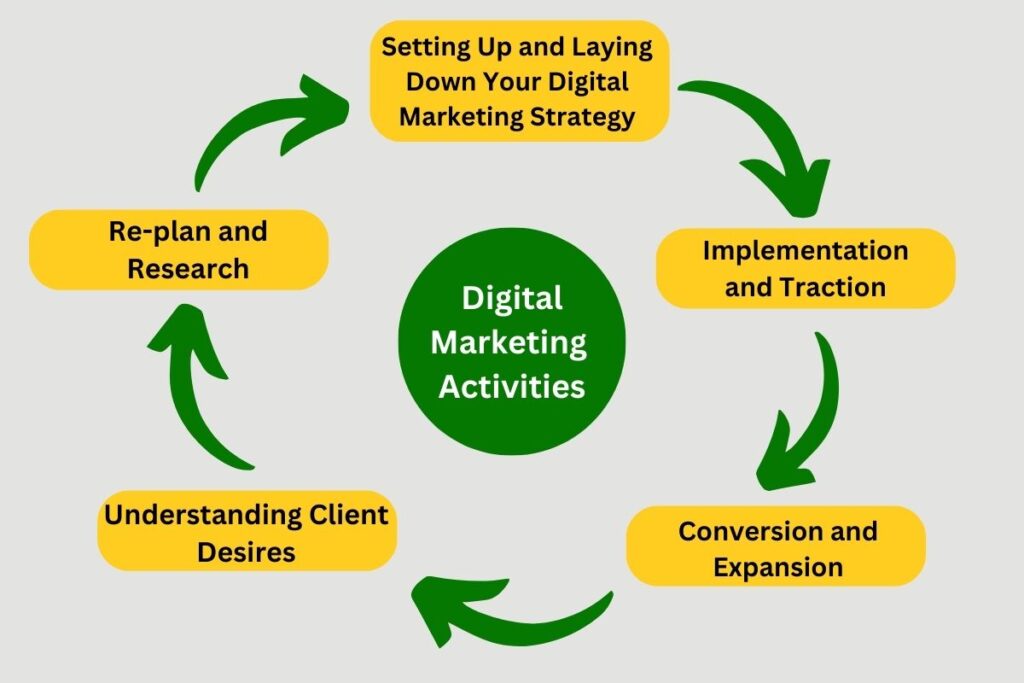
Understanding the Power of Digital Marketing
How SEO Boosts Online Visibility
SEO optimizes websites to improve their visibility in search engine results, drive organic traffic, and increase brand exposure.
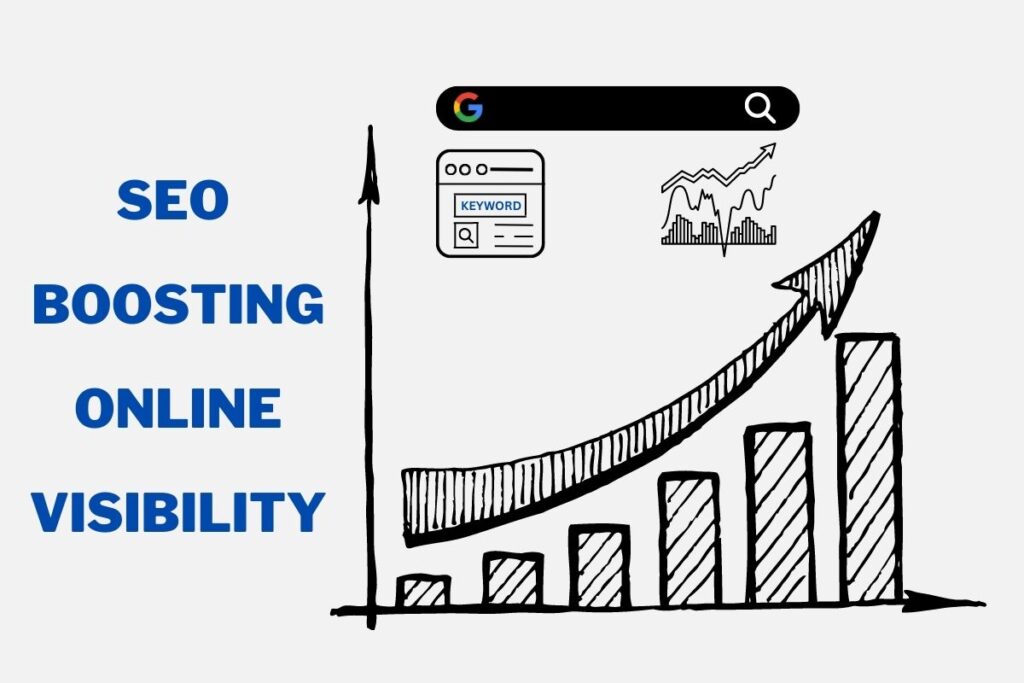
Engaging with Social Media Marketing
Social media marketing leverages platforms like Facebook, Instagram, and Twitter to engage with audiences, build brand awareness, and drive website traffic.
Explaining What Is Digital Marketing with Examples
- Search Engine Optimization (SEO): SEO optimizes a website’s visibility on search engine results pages (SERPs). Furthermore, businesses can improve their organic rankings and attract more organic traffic by optimizing website content, incorporating relevant keywords, and building high-quality backlinks. For example, a bakery can use SEO techniques to appear higher in search results when potential customers search for “best cakes in [city].”
- Pay-Per-Click (PPC) Advertising: PPC advertising allows businesses to display their ads on search engines and other platforms. Moreover, advertisers only pay when someone clicks on their ad. An example of PPC advertising is Google Ads, where businesses bid on keywords related to their products or services.
- Content Marketing: Content marketing focuses on developing and marketing valuable and relevant information to attract and maintain an audience. Additionally, numerous types of information, such as blog posts, videos, infographics, and eBooks, help to achieve this purpose. For instance, a real estate agency can establish authority and generate leads by creating informative blog posts about the local housing market.
- Social Media Marketing: Social media marketing involves leveraging social media platforms like Facebook, Instagram, Twitter, and LinkedIn to connect with the target audience. Consequently, companies can create engaging content, run paid advertising campaigns, and interact with customers to build brand loyalty and drive website traffic. For instance, a fashion brand can use Instagram to showcase its latest collection and engage with followers through contests and promotions.
- Email Marketing: Through targeted messages, personalized content, special offers, and updates, email marketing actively nurtures customer relationships with subscribers.
- Influencer Marketing: Popular social media influencers partner with brands to promote products or services, leveraging their trust and authority to reach a wider audience through influencer marketing.
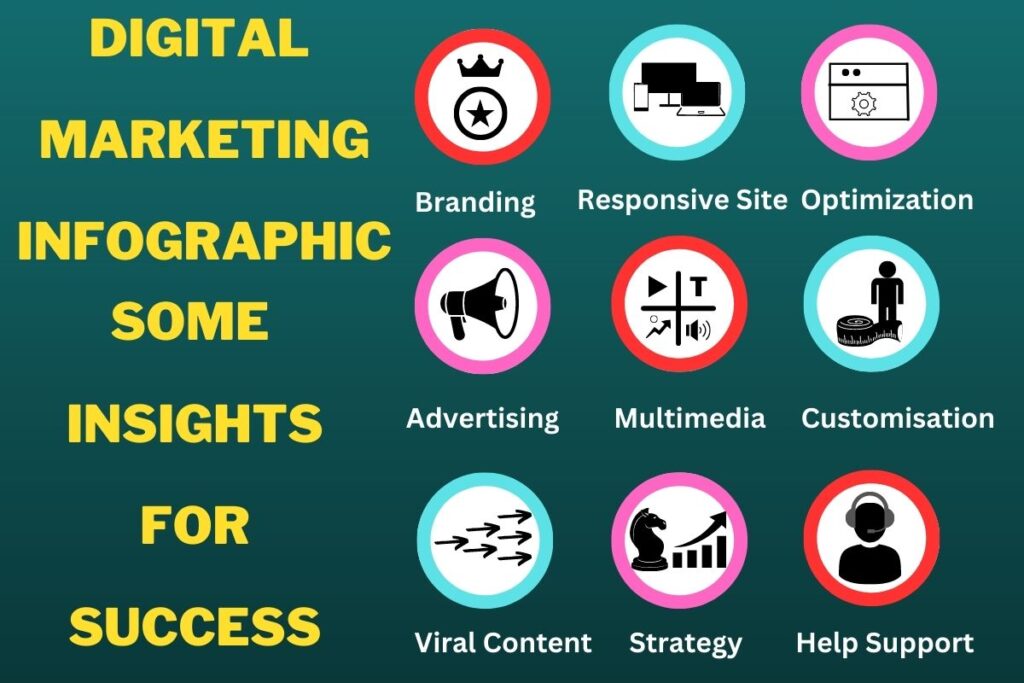
The Importance of Digital Marketing for Businesses
Businesses of all sizes and industries benefit from digital marketing’s numerous advantages. It enables companies to expand their audience, target specific demographics, and measure marketing effectiveness in real time. Moreover, by leveraging digital marketing strategies, businesses can enhance their online presence, increase brand visibility, and drive sales and revenue.
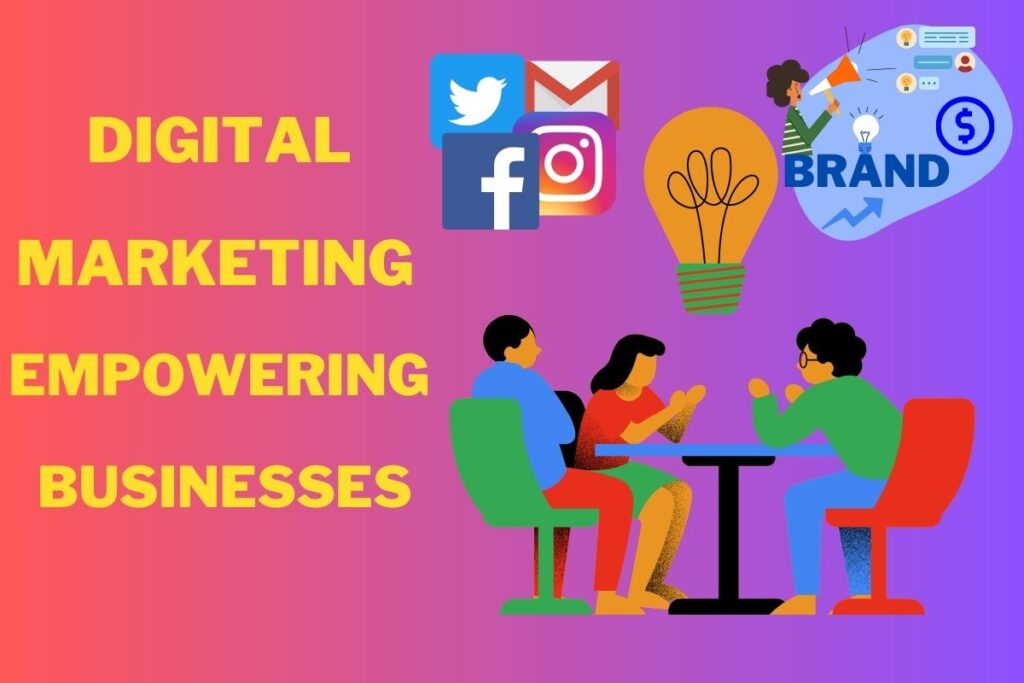
Conclusion of What Is Digital Marketing?
Digital marketing has become an indispensable tool for businesses aiming to thrive in the digital landscape. Businesses effectively reach their target audience by leveraging various digital channels and strategies, including SEO and PPC. Furthermore, core components of digital marketing drive business growth. In conclusion, both small business owners and aspiring marketers must understand the concept of digital marketing, as it is essential for staying competitive in today’s digital world. Hopefully, you got the answer to What Is Digital Marketing?
Also Read: Article Writing Format Made Easy: Your Ultimate Guide






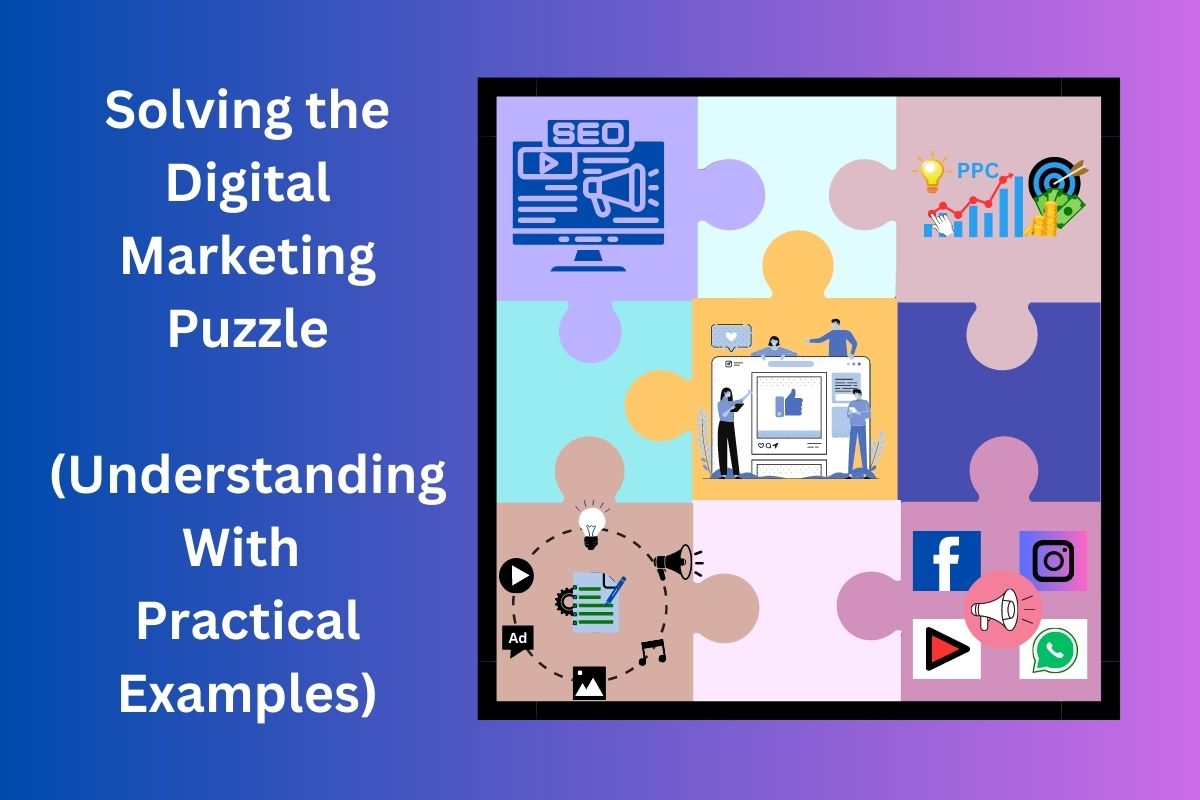



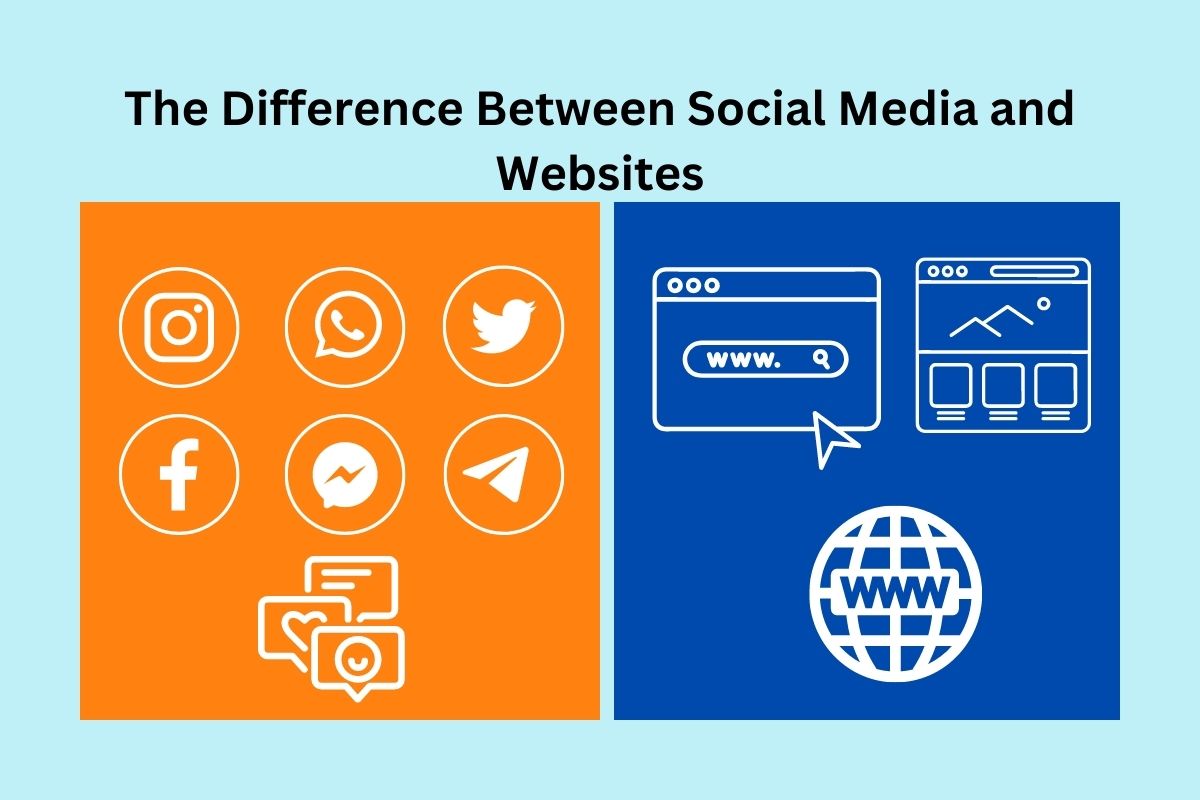
One thought on “What Is Digital Marketing? Understanding With Practical Examples”